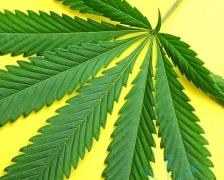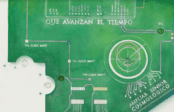[dropcap style=”font-size:100px; color:#992211;”]C[/dropcap]annabis hysteria has come a long way.
Against the backdrop of Reefer Madness and the infamous bent-testimony of Harry Anslinger’s stooge in 1938 (‘After two puffs on a marijuana cigarette, I was turned into a bat’), the Annals of Emergency Medicine‘s call for better packaging of edible THC products seems more than reasonable.
Growing kids eat enough without an attack of the munchies.
States that decriminalized marijuana saw dramatic increases in children requiring medical intervention, although the overall number of unintentional marijuana exposures among children remained low. The Annals of Emergency Medicine study of call volume to U.S. poison centers from January 2005 through December 2011 is published online (“Association of Unintentional Pediatric Exposures with Decriminalization of Marijuana in the U.S.”).
“We believe that high-dose edible products – such as candies, cookies and chocolates – may have played a significant role in the increased rate of reported exposure, chiefly because kids can’t distinguish between products that contain marijuana and those that don’t,” said lead study author George Sam Wang, MD, of the Rocky Mountain Poison and Drug Center in Denver, Colo. “These edible products may be attractive to children and tend to contain higher concentrations of the active ingredient, tetrahydrocannabinol.”
Critical care admissions
The call rate to poison centers in states that decriminalized marijuana increased by more than 30 percent per year between 2005 and 2011, while the call rate in non-legal states did not change. More pediatric exposures in decriminalized states than in non-legal states required medical evaluation, had moderate to major clinical effects and required critical care admissions. Neurologic effects were the most common.  The most common therapy was administration of intravenous fluids. Aggressive interventions were rare and there were no deaths.
The most common therapy was administration of intravenous fluids. Aggressive interventions were rare and there were no deaths.
As of December 2013, 18 states and the District of Columbia had passed legislation allowing medical marijuana, which includes many edible products. Sales are projected to more than double between 2011 and 2015.
“Pediatricians, toxicologists and emergency physicians need to be willing to advocate for the safety of children to lawmakers as this burgeoning industry expands across the U.S.,” said Dr. Wang. “As more states decriminalize marijuana, lawmakers should consider requirements – such as child-resistant packaging, warning labels and public education – to reduce the likelihood of ingestion by young children.”
Source: American College of Emergency Physicians
Image: Freedigitalphotos.com

Some of the news that we find inspiring, diverting, wrong or so very right.



















